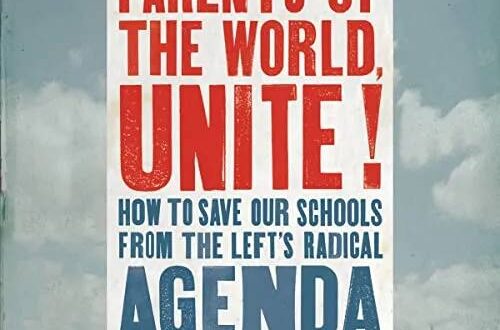We Will Not Be Silenced

Follow Kelli at www.kelligarms.com for more book reviews. Reposted with permission
n a society that seems to be disintegrating before our eyes, Lutzer helps us identify the root causes and gives us tips for combating it from a Christian worldview.
Erwin Lutzer’s book, We Will Not Be Silenced: Responding Courageously to Our Culture’s Assault on Christianity, is one of the best explanations of the current situation in America and the direction our country is going that I have read. It is an encouragement to course correct as soon as possible, and it gives specific ways Christians can and should stand against the tide of the culture.
While I struggled through some sections where he and I have a different perspective (I address these at the end of the post), Lutzer made connections I haven’t found in other materials I’ve read on this subject.
Lutzer gives a thorough and clear history of cultural Marxism and how it is gaining ground in the United States. Beginning with the destruction of the nuclear family, Marxism really took root in feminism, encouraging mothers to work outside of the home and allowing others (namely the public education system) to raise their children. The key to Marxism is oppression. Once someone is convinced she is a victim, she is easier to motivate into revolution.
He makes this connection even further when he addresses the link between broken families or single parents and Marxism. He says, “Children without family roots can be more easily directed toward secular values and state benefits. The state can do for them what their parents failed to do” (27).
This victimhood formed the basis for the flourishing of feminism, abortion, the sexual revolution, homosexuality, and transgenderism. These movements have not happened organically but have been planned and executed by those who seek to destroy America as we have known it.
Lutzer dives into the reasons behind the rewriting of American history. He says, “…when revolutionaries want to remake a country, they vilify the past to give legitimacy to their vision of the future” (42). In order to make those in the next generation buy into the “necessary” changes, the Marxist must convince them our country is founded on terrible principles and must be destroyed and rebuilt. There can be nothing positive in our history in order for this revolution to take root.
“Absurdity is no longer an argument against a point of view. If you are progressive, you have to detach from reality and self-righteously embrace the bizarre. This is the world of alternate facts, and the price one has to pay to see evil as good and good as evil.”
Quote by Erwin W. Lutzer
Other connections Lutzer makes include the link between Marxism and fighting climate change as well as opening the American border and defunding the police. But Marxism is never about the issue it claims; it is always about power.
We have redefined words and created new terms to ensure that the conflict between races, classes, and genders will never be resolved. We must remember that, “In CRT [Critical Race Theory a.k.a. social justice],…the goal is not to foster unity or common ground but to assign blame and ensure that people will be put into categories so that tensions between the groups can be enflamed and maintained” (80). Ultimately, “No common ground is allowed because that would diminish the extent to which some groups have been oppressed. And no concessions are ever enough” (81). Lutzer reminds us that, “Only through the cross can we show [the world] what reconciliation looks like” (100).
Throughout the book, Lutzer upholds the biblical definition of man (and woman) as one made in the image of God, as well as the biblical instruction on gender, marriage, family, and the church. He reminds us that we must remain faithful in the face of the blatant lies of the culture. He is especially concerned with the sexualization of children: “Perhaps nowhere do we see the work of Satan in America as clearly as we do in the sexualization of children—destroying their identity, confusing their gender, and creating unresolved guilt and self-hatred” (156).
Lutzer also dives into the world of economics, explaining why capitalism, while flawed, is rooted in principles that align with Scripture. He takes on the proponents of socialism by explaining how it will always inevitably fail.

One connection Lutzer makes that had not been presented to me before is the mind-blowing alignment of the social justice movement with Islam. This is mind-blowing because there is no more “intolerant” religion than Islam, yet we find the very things it condemns have aligned with it. Why? Because the enemy of my enemy is my friend. Islam calls for the destruction of America. Since there is a shared goal, they can work together to that end. However, the partnership cannot last. But when the dust settles, which one will stand victorious?
While I love this book and think every Christian should read it, I did have a few moments of disagreement with the author. Lutzer seems to lean a little heavily in support of the idea of systemic racism in America. He says that “we are not yet where we want to be in race relations; the failures of the past must be acknowledged, and forgiveness and reconciliation are the way forward” (51). He goes on to say that we must “take personal and collective responsibility” (54), yet he doesn’t define or delineate exactly how this should take place. Finally, he says that “Those who are white need to be sensitive to the concerns of their brothers and sisters from other ethnic backgrounds” (63), but he never extends the same courtesy to “white” brothers and sisters.
Along the same lines, Lutzer’s wording around the topic of George Floyd’s death lays the blame completely on the police officer. He calls it a “horribly unjust incident” (45) and “the tragic murder of George Floyd by a Minnesota police officer” (72). While no one celebrated the death of George Floyd during an altercation with the police, there are still so many questions not only about the cause of death, but also about the trial, and it is not prudent for Lutzer to make such strong statements on one side of the issue.
Our disagreements on these issues may simply be a result of our differing perspectives. I live in a smaller city in rural America. I honestly don’t see many racial difficulties. Lutzer lives and ministers in Chicago. I can imagine his perspective is very different.
Regardless of perspective, the Bible is clear that we repent for our own sins. It is an individual and personal interaction with God. We cannot repent for the sins of another, nor can we repent on behalf of someone else. It doesn’t do us or them any good. Brothers and sisters in Christ should come together as Christians first. The color of our skin does not make us more or less righteous before God, and should not affect how we relate to one another. While Lutzer doesn’t necessarily contradict this biblical position, he doesn’t go far enough in his writing. He doesn’t specifically state it, and therefore, leaves room for the very victimhood this book is meant to combat.
All in all, I agree with Dr. David Jeremiah’s sentiment on the cover of the book: “If I could, I would put this book into the hands of every Christian in America.”
While many do not agree with the culture’s perspective on social justice and all of the baggage that comes with it, we have been mocked into silence. We have been led to believe that we are not allowed to voice our concerns. But we cannot remain silent. There is an intentional attack on our freedom of speech, but we must speak while we still can. Lutzer cautions us that, “Freedom of speech and civility will not be restored until the victimology culture is shown to be the fiction it is” (231). And he reminds us that, “We don’t have to shout louder than others when we stand our ground. We just need to know that we are being faithful to our Commander and King” (243).



